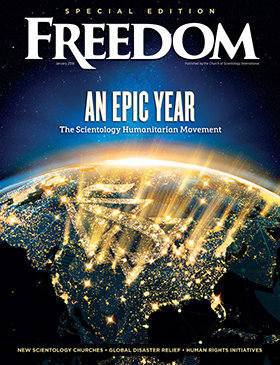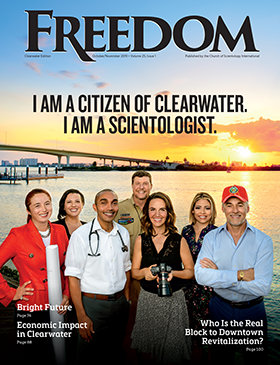
Before the entrance of Drug-Free World, Colombia had no national drug prevention program. It was a serious problem, because, according to the nation’s Ministry of Justice, 640 tons of marijuana are consumed in Colombia every year and about 30 percent of that crop is exported.
The volunteers of Drug-Free World have given Colombians the drug prevention program they have needed, and have worked to increase drug awareness and drug-free thinking among Colombians since the program was launched in 2006. It has involved not only the dangers and destruction caused by illicit street drugs, but has also addressed the devastation that comes as a result of addiction to alcohol.


Since taking a lead in educating individuals through Drug-Free World, significant advances have been made in getting information into schools, universities, communities and especially into the armed forces—all of which have embraced the message. “We work in the lion’s mouth here,” said Ingrida Lingyte, a program leader. “I know I am changing lives, changing the direction of many youth, and it’s literally saving lives.”
A similar story is taking place in Baja California Sur, the southern Mexican state on the Baja peninsula, where residents are within the sphere of the world’s most voracious consumer of illicit drugs—the United States. It has led to a decades-long plague in this land of drug trafficking and addiction.
But a glimmer of hope arrived with the entry of the Foundation for a Drug-Free World, whose education programs are offered in schools all over the state. In fact, the state’s adoption of the Truth About Drugs curriculum is the largest collaboration between the foundation and a partner to date.
When the new school year started in autumn 2017, the Foundation delivered—free of charge—nearly 3,000 packages of materials for educators and their 40,000 students from 230 schools.















































